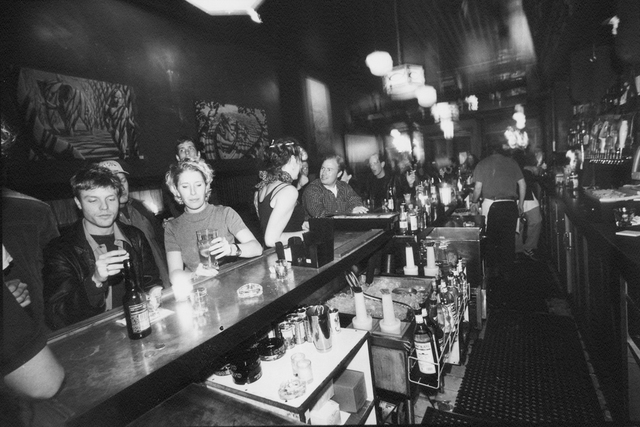For some reason, people in Austin are obsessed with Seattle. They love to compare their town to ours. If it rains even a little, they’ll sigh and say, “Geez, this is just like Seattle.” So when Seattle filmmaker Meg Richman showed her ravishing, light-filled new feature Under Heaven last week at Austin’s SXSW Film Festival, the first question asked at the Q&A session was “How did you get Seattle to look like that?” Richman answered simply, “We shot in July.” Whew, breathed the people of Austin. Thank God Seattle doesn’t look like that all the time.
The day after the screening, I met Richman for coffee on Congress Street, in the shadow of the Texas Capitol. She said, “They ask me that wherever I take the film: ‘How do you get it to not rain in Seattle?'” She doesn’t think she misrepresents her native city by washing it in sunlight and filling it with flowers. “My only problem was, I thought I didn’t make it pretty enough.”
Richman’s film is a decidedly pretty retelling of Henry James’ The Wings of the Dove, which received such unpretty treatment in Iain Softley’s noirish (and ultimately unsatisfying) adaptation from last year. Richman, an old hand at screenplays, adapted the novel loosely, setting it in contemporary Seattle and bending the plot a good bit. But her film, for all its contemporary clothes and its beer-swilling grungy hero, gets closer to the moral force that informs James’ work. Richman’s script shows an understanding of the way circumstance can at once reveal and create a moral center in a person. It’s a remarkably powerful first feature, helped along enormously by the casting of the supple Joely Richardson as the heiress. The love triangle is rounded out by Australian actor Aden Young and Canadian Molly Parker, who made necrophilia look so feelingful in last year’s Kissed.
Richman, who’s done some theater directing, said working on film gave her new respect for actors. “Aden would ask me what lens I was using,” reports Richman. “At first I thought he was testing me. But he knew by what lens how the picture would look and therefore how he should deliver his performance.”
Ironically, it was the very prettiness of the film that hurt her with the critics at Sundance. Despite strong audience response and a “best of Sundance” nod from NPR, Richman’s film was called “treacly.” At the SXSW screening I attended, folks were calling it the best film of the festival. “I got creamed in the trades [during Sundance],” she says. “I’m not a treacly person, so I was shocked.” She attributes the bad reception to the film’s strong feminine viewpoint. “I’m from the West Coast, I’m not cynical, I’m female, and I like things to be lyrical. You girls out there, don’t do it! Don’t be lyrical!” Richman’s own taste runs to what she calls the “humanist” in film: Satyajit Ray, Eric Rohmer—”Summer is the best film ever made,” she says of Rohmer’s masterpiece about a woman’s revelatory summer vacation.
When asked what she felt when she heard Miramax was releasing Wings of the Dove (which she refers to as “that other movie”), she responded simply, “Nausea.” Richman had met with Miramax about developing her own script. “They told me, ‘Harvey [Weinstein] just has a couple of things.’ That didn’t seem too onerous. We go in to meet with him, and first thing he said was, ‘You know, there are some really stupid things about this script.'” She deadpans: “I didn’t feel simpatico. Next thing I knew, they’d hauled their own Wings of the Dove treatment out of the closet and started work on it again.”
Richman’s film has a somewhat beleaguered history between the Miramax competition and the early reviews, but she’s philosophical about the future of the film. “We’ve found that audiences love the movie—it’s gonna get by on word of mouth.” Seattle audiences will have a chance to love Under Heaven at SIFF, and Richman looks forward to a probable July release date for the film.





